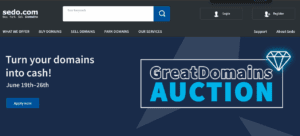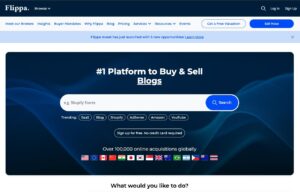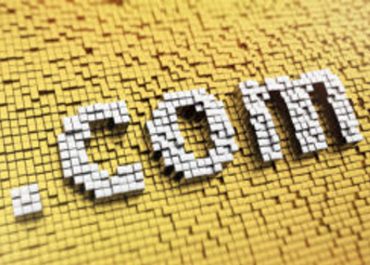How to Rebrand Your Business and Domain Name
Even well-established businesses sometimes need to rebrand, and one of the biggest issues can be finding a new domain name to match. In this post, NameExperts.com Director Joe Uddeme looks at the smart way to do it. Looking to rebrand your business? It’s rarely a walk in the park, with a to-do list that features everything from registering your new name, changing all of your company materials, and, crucially, securing a new domain name that can help your rebranded business to grow. There’s often a significant culture change, too, and it’s important your staff understand why you’re rebranding and what your hopes are for the new-look company. In this post, we’ll look at some key things to consider, including buying the domain name you’ll need. Key Takeaways The compelling reasons behind rebranding Considerations for your audience/marketplace Publicizing your new brand Practical considerations (logos, etc.) How to rebrand a business Branding is a critical consideration for every business. Branding refers to promoting your products with a distinctive feel and design. It’s an ideal way to differentiate yourself from competitors. No matter how good your products are, you won’t sell them without proper branding and customer awareness. Branding isn’t an easy task. We wouldn’t have many companies struggling to sell themselves if it was. The world is littered with failed branding strategies, even from big brands. Netflix’s struggled early on to use Qwikster to break out its DVD rental service and its streaming service. However, a failed branding strategy isn’t the end of the world. Any business can rebrand and make it right with consumers. Netflix didn’t give up when its Qwikster brand failed. It continued DVD rentals with its usual name (successfully) before pivoting to video streaming later. When your initial branding strategy doesn’t work, the intelligent thing to do is a rebrand, and there are specific factors to consider when doing that. Be clear on what’s driving the rebrand Before initiating rebranding efforts, you must be clear on what’s driving the need for the rebranding. There are varying reasons for a business to rebrand, and each demands different strategies. The most common reasons for rebranding include: Having an outdated brand To reposition your brand Reputation management Brands can become outdated when they fail to keep up with rapid changes in modern style and influence. For example, a social media site from the early internet days won’t survive well in this current internet age when we have vastly different demographics. The early social media platforms became outdated over time, and those that failed to rebrand lost market share. You can also rebrand to reposition your company’s business strategy. If your original name focused on a niche, but has evolved to target a broader offering. FilterEasy to Second Nature is a good example of a brand that changed brand names to better align with their new offering. They originally focused on selling only filters but evolved to sell home care products. Check out our story about the rebranding of Monday.com for another great case study. Businesses also rebrand for reputational purposes. You may have started with a well-meaning name that unfortunately became associated with negative things in the future. A typical example is a Chinese fashion retailer named ISIS that had to rebrand when the name became associated with terrorist activities. Focus on the Core Messaging Your rebrand should have clear and concise messaging. You should be able to tell a story with your new brand that customers can relate to. Just don’t rebrand without context – because that can irk existing customers. Let them know why you’re rebranding and why it’s better for the business. A simple explanation goes a long way in making your customers empathize with you despite the short-term inconvenience. Let your teams know this, too. Consider your audience, market, and competition Take time to evaluate how your rebranding would affect your existing audience (customers) and standing against competitors in the market. Ensure you research to validate if your rebranding reasons are appropriate. How would your customers react to an unfamiliar brand name? Is there intense brand competition in your industry? These are good questions to ask before initiating any rebrand. You must be sure that the direction of your rebrand matches what customers want. There are two main types of branding research: quantitative and qualitative. Quantitative research entails collecting and analyzing numerical data to find patterns, while qualitative implies using non-numerical data. Focus groups are a good example. Publicize your new brand Your rebranding efforts will be futile if you don’t make customers aware of it. Consumers have short attention spans, meaning they can easily forget your old brand. Once you rebrand, assume you’re a newly formed brand and market like one. Buy ads on social media platforms, search engines, TV, etc., to spread the word about your new identity. How do I rebrand an existing business? 1. Buy a new domain name In this digital age, not having a website puts you on a lower level than your competitors. Hence, the first step to rebranding an existing business is securing the proper domain name. Before choosing your new brand name, check if a corresponding domain name is available. Your domain name is how customers would find you, so you can’t afford to make errors here. You can buy any available domain name through any domain registrar. However, there are cases where a domain you want is already taken, and you see yourself having no other choice. Don’t fret. You can enlist a domain name broker to find and contact the owner with an offer on your behalf. Domain brokerage services are great at negotiation and can take care of the technical side of domain name acquisition, too. 2. Change your logo A logo is an essential aspect of any brand because it’s one of the first things a customer recognizes and identifies with. Hence, you should change your logo during rebranding to signal your new brand identity. You can make your logo simpler for customers. Likewise, you can use unique colors to make your new brand stand out from your former. 3. Change your slogan Many brands have a slogan that customers resonate with, e.g., Nike’s “Just do it” and Disneyland’s “The happiest place on earth.” It would be best if you changed your slogan when rebranding to flaunt your new brand identity. 4. Create new ads You should create advertisements fitting your new brand identity. Your ads will now use a different slogan, color palette, keywords, etc. What does it mean to rebrand a business? Rebranding is the process of changing an organization’s corporate image. It entails creating a new look and feel for an existing company to influence customer choices. A rebranding company would typically change its name (and domain), logo, slogan, vision, mission statement, etc. Why would a company rebrand? There are various reasons why a company would rebrand. It could be repositioning themselves for a new business strategy, reputational management, or simply fixing an outdated brand. If a company is switching from a niche market to a larger one, it’s wise to rebrand appropriately to match its new focus. Likewise, if a company’s brand suffers from a poor reputation due to internal or external causes, a rebrand can help avert it. Should you rebrand your business? Rebranding is a complex and expensive undertaking that you must do only with a clear goal. If you’re not looking to change your strategy, avert a reputational crisis, or face other standard issues that call for rebranding, we advise you to avoid it. However, in the right circumstances, it can give a struggling company or one with immediate challenges a new lease of life. About the author Joe Uddeme is Director and Principal of Name Experts, one of the world’s leading domain name brokerage services. He has overseen domain name sales and acquisitions totaling more than $150 million and is renowned worldwide as a go-to expert in buying and selling premium domains. Joe has helped with the rebranding of numerous large companies. Contact him at: [email protected]





